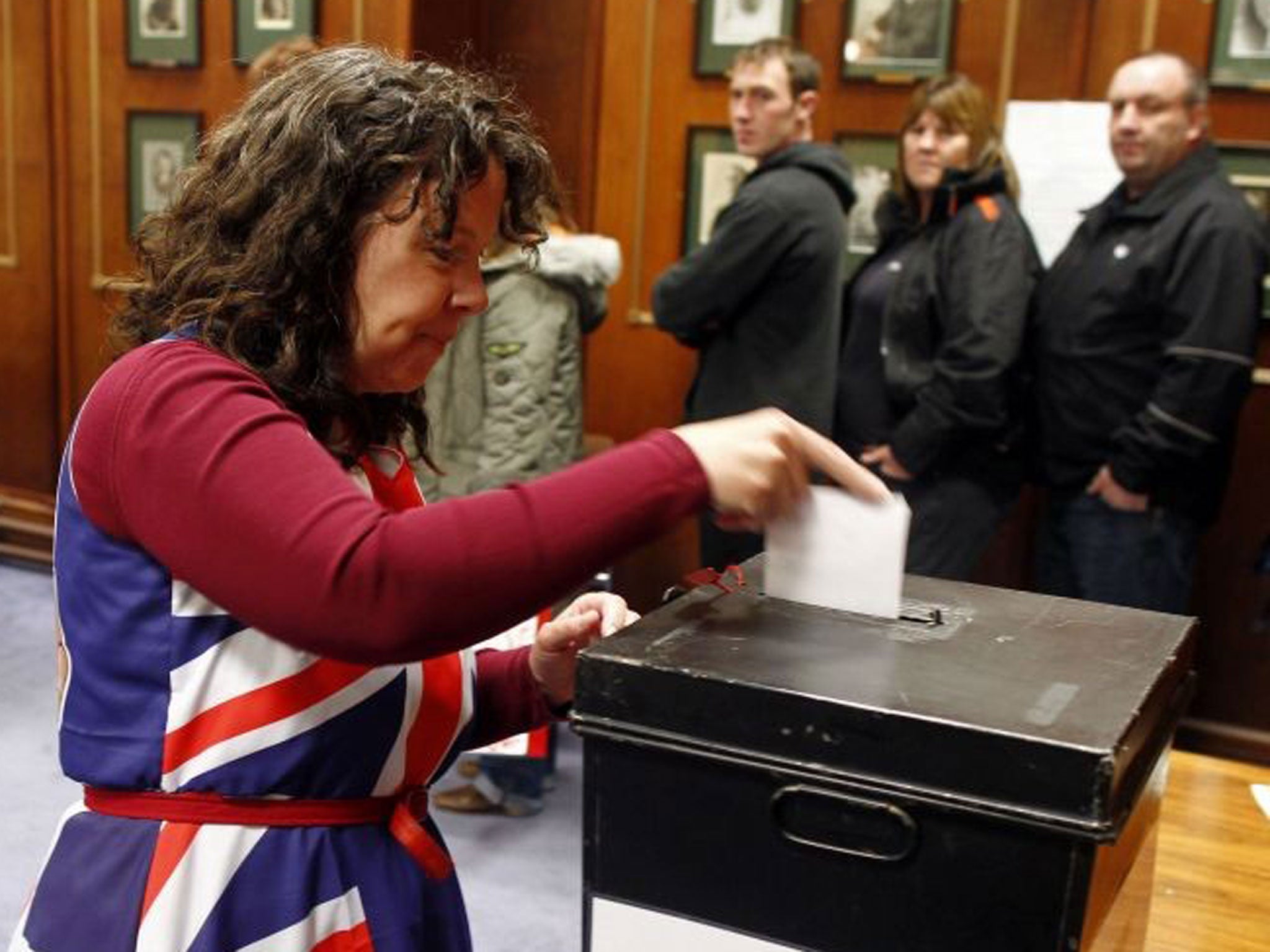Falklands referendum: Why ask British people if they want to be British?
Alejandro Betts, formerly Alexander, is the Falklands’ only ‘defector’. He tells David Usborne the referendum is pointless

Alejandro Betts has an idea how members of his family – his 86-year-old mum, his daughter and her kids – will vote in the Falklands referendum.
“Frequent contact with me would create difficulties for them in the social area,” he admits. They are on the islands and he – the black sheep of the family – is in Argentina.
That Britain and Argentina are again at loggerheads over the future of the South Atlantic archipelago is no secret. At the weekend, Buenos Aires unleashed a new onslaught of diplomatic complaint, accusing London, inter alia, of diplomatic inconsistency. How is it, a statement from the foreign ministry asked, that this vote is so vital yet Britain omitted to “seek the opinion of the inhabitants of Hong Kong” when it returned that territory to China?
For the Betts clan, Scots and English who settled on the islands in the mid-1850s, the problem, simply, is Alejandro. Now 65-years-old, he lives and works in a tiny town in the Córdoba province of Argentina supervising the country’s north-west area air traffic control. He has an Argentine wife and nationality. He also thinks, like most people in this country, that Britain is out of order claiming the islands.
Alexander Jacob Betts, as he was once known, may be Britain’s only Falkland Islands “defector”. His file is short and curious. An employee before the 1982 war of a subsidiary of the Argentine Air Force that offered civilian services to the remotest corners of the region, he also fancied himself as a bit of an historian.
After spending years sleuthing the conflicting claims about the status of the islands, in the late-1970s, he reached a tricky conclusion. They surely were Argentinian. “It was a hard pill to swallow,” he told The Independent. “Our family had been on the islands for four generations and the UK Government had always insisted there was no chance the British claim could be challenged by anyone. It was absolutely solid from a judicial and historical point of view. And I find it wasn’t.” He tried to sell his version of history to mates in Port Stanley.
When asked if this made him unpopular, he says: “To put it mildly”. He says he had begun inquiring about a transfer to the mainland even before the war broke out. In the end, he left the islands for Argentina a few weeks after it ended. He was granted an Argentine passport and he became Alejandro Jacobo Betts.
He was not received as any kind of hero. But over the years Mr Betts gradually came to the attention of Buenos Aires as a possibly useful foot-soldier in its campaign to corral Britain to the negotiating table. When President Cristina Fernández de Kirchner addressed the UN on the topic in June last year, Mr Betts was there too and spoke up for his adopted land.
In short, he considers the referendum useless, not least because Margaret Thatcher’s move after the war to give the islanders the right to live and work in the UK amounts still to a kind of bribery. “The result is a foregone conclusion and it will do absolutely nothing at all towards finding or moving us towards a definitive solution to this problem,” he says.
It’s a view that tracks closely to Argentina’s. “It’s almost an act of self-satisfaction to ask British people if they want to be British,” declares Senator Daniel Filmus, head of the Senate Foreign Relations Committee.
Ernesto Alonso, the head of the Centre for Ex-Combatants in the Malvinas, one of several veterans’ organisations goes further. “The referendum accentuates the political illegality of the UK’s position,” he says. “It is obvious the inhabitants are descendants from the people who were implanted there by the colonists”. Both he and Senator Filmus say they would never endorse the last war or seek a new one. “We are a peaceful nation,” says Mr Alonso.
The sad consequence of Mr Bett’s defection is the radio-silence between him and his kin. His daughter visited Córdoba in 1996 with her children: that was the last time he saw any of them. Might his relatives at least have voted “no” out of some sort of nostalgia for him? Hardly, he says.
Subscribe to Independent Premium to bookmark this article
Want to bookmark your favourite articles and stories to read or reference later? Start your Independent Premium subscription today.

Join our commenting forum
Join thought-provoking conversations, follow other Independent readers and see their replies